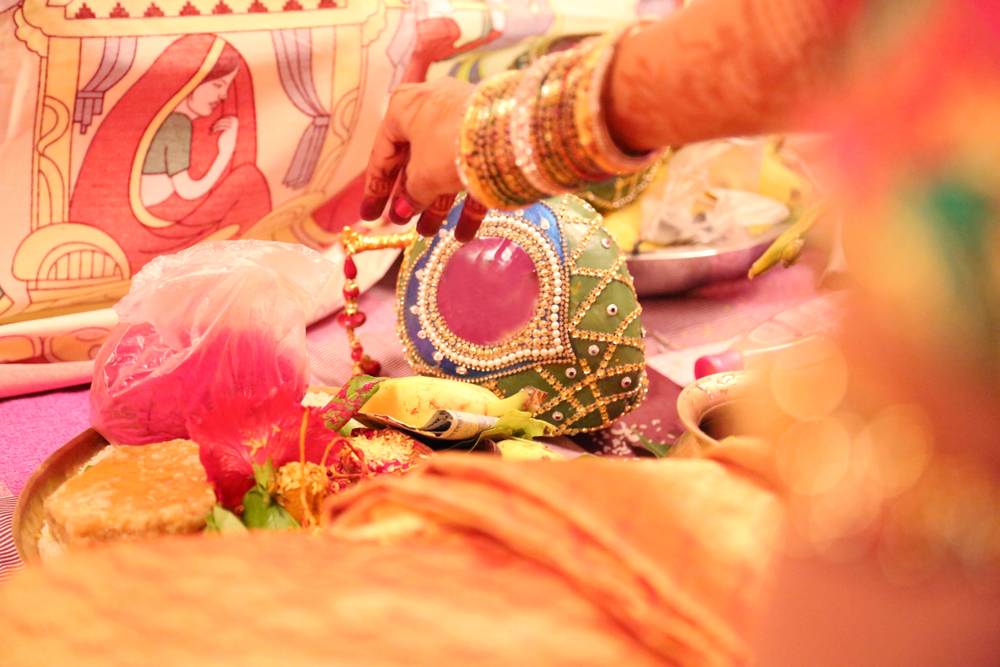 Last updated: March 7th, 2020 4:30 PM
Last updated: March 7th, 2020 4:30 PM
Nagaland Marriage Certificate
Considered as a solemn occasion graced by loved ones and well-wishers alike, the event of marriage must be legally registered to be recognized in law. A marriage certificate, issued by the respective state governments upon registration, is a document certifying the nuptial bond of a bride and bridegroom. In India, marriage registration takes place either under the Hindu Marriage Act, 1955 or the Special Marriage Act, 1954. In this article, we look at the procedure for obtaining a Nagaland marriage certificate.Legal Regulations
The Indian marriage regulations stipulate that a bride and bridegroom entitles to nuptials at the age of 18 and 21, respectively. On satisfying these criteria, the applicant can obtain the marriage certificate.Purpose
The document is handy for passport applications and activating a bank account with a new surname. Moreover, embassies require the certificate processing visa, given a scenario wherein the couple wishes to move abroad.Required Documents
By furnishing the following documents, the applicant can obtain the following documents:Proof of Residence
- Proof of age
- Proof of identity
- Proof of date of birth of the wedded couple
- Ration Card
- Proof of marriage; which could be a wedding invitation, temple marriage entitles certificate or proof of marriage solemnization
- Marriage affidavit of the couple
- Aadhaar Card
Proof of Identity
- Voter ID card.
- E-Aadhaar letter or Aadhaar card issued by the Government of India.
- Passport
- Driving License
- Arm's License with photograph
- Ex-servicemen contributory health scheme card or Government health scheme card
- Applicant's ration card along with the photograph.
- Identity card along with photograph issued by the Government.
- Pensioner card with applicant photograph.
- Copy of bank certificate in original on letterhead from the branch containing the duly attested photograph.
- Bank account number of the applicant.
Proof of Date of Birth
- Applicant birth certificate issued by the Municipal authority.
- Copy of school leaving certificate.
- Passport
- Copy of medical certificate containing age.
Registration Procedure
As above, marriage registration performs under the Hindu Marriage Act or the Special Marriage Act. Let us understand the regulations for each of them:Hindu Marriage Act
The Hindu Marriage Act was established in the year 1955 to amend and codify the nuptial laws of Hindus, among others. The Act facilitates separation and divorce, which was a misnomer in the previous Sastrik Law. The Act is applicable to Hindus, Buddhists, Jains, Sikhs, or any other person who is not a Christian, Muslim, Parsi or Jew by religion. Only by satisfying the following conditions, marriage can take place under the Hindu Act.- Neither of the party should involve in a marital relationship at the point of marriage.
- The parties are sound enough to provide a valid consent of the particular marriage and are not suffering from any mental disorder that makes them unfit for marriage and procreation of children.
- The person is not dealing with any recurrent attacks of insanity or epilepsy.
- The parties are not within the confines of prohibited relationship, except if the custom or usage governing them makes room for a marriage between them.
- The parties are not sapindas of each other, except if the custom or usage governing them makes room for a marriage between them.
Special Marriage Act
The Special Marriage Act was brought into force in the year 1954 to facilitate inter-caste marriages. This Act is applicable to Indian nationals and people residing in foreign countries. It was aimed at facilitating a special form of marriage; facilitating registration for such marriages and to enable divorce. The conditions of marriage are almost similar to the Hindu Marriage Act, except for the clause of objections whereby certain people entitle to raise their objections to the marriage. Unlike the Hindu Marriage Act, marriage under this Act is solemnized after a few legal formalities. The Act mandates compliance with the following procedures: Step 1:- Issue of notice The parties who wish to marry must produce a notice to the Marriage Registrar, in whose jurisdiction either of the parties resided for at least 30 days prior to the submission of the notice. Step 2:- Solemnization In case of no objections, the marriage may be solemnized after 30 days of the issue of notice. Any objections will force the Registrar, upon enquiry, to decide for or against the marriage. The registration occurs only after the marriage solemnization. Also, the applicant can receive the certificate in due course of time.Validity and Time-limit
The issuance of certificate usually takes in a week's time. Once obtained, the certificate is valid for a lifetime or at least until the couple part ways.Tatkal Marriage Certificate
The system of Tatkal payment was recently introduced to authorize the marriage in a single day if priority kicks in. The system provides the citizens with the option of obtaining the certificate within 24 hours by paying a fee of Rs. 10,000.Popular Post

In the digital age, the convenience of accessing important documents online has become a necessity...

The Atalji Janasnehi Kendra Project that has been launched by the Government of Karnataka...

The Indian Divorce Act governs divorce among the Christian couples in India. Divorce...

When an individual has more than a single PAN card, it may lead to that person being heavily penalised, or worse,...

Employees Provident Fund (PF) is social security and savings scheme for employee in India. Employers engaged...


